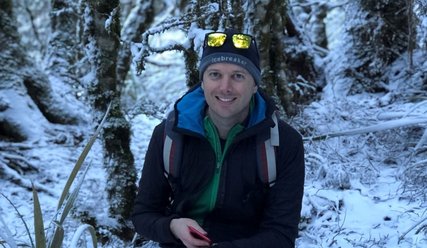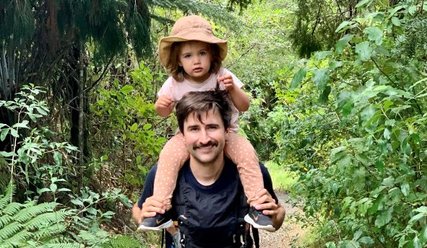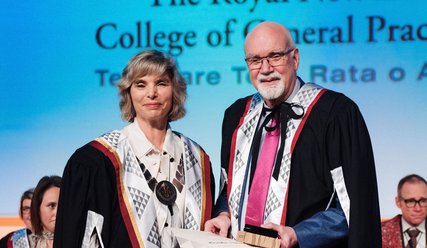Andrew Morgan: new Chair of the DRHM
Dr Andrew Morgan was the first (and probably the last) medical school student who elected to work in poverty-stricken Sudan during his final year of med school.
He initially went for three months but that turned into five, and the trip became a career-defining experience for a young doctor. Working in a children’s emergency hospital and a refugee camp on the Ethiopian border created daily challenges that were both medically fascinating and equally horrific. He worked alongside local and expatriate doctors, treating children who were faced with poverty and starvation. Radical and often dangerous working conditions meant that on a trip across the desert into Chad he had to sleep in police compounds to be safe.
Returning to New Zealand, Andrew spent the next five years working as a general practitioner in Blenheim, before he found himself being drawn back into the unpredictability of emergency and rural medicine. Only this time, it was an adventure for the whole family.
“I’ve always had a sense of adventure; I like different experiences. I think it’s healthy to be a bit unsettled and then embrace change.”
When we decided to go to Niue, I just knew that it was exactly the right thing for us to do. It was an exciting but challenging time. My wife and I had two young kids and a third on the way.
My wife took one look at the delivery ward and said, “book me a ticket home.” Sam could have been born in Niue but we came back to New Zealand for his birth and he was ten days old when we flew back.”
Andrew worked as a medical officer in Niue for two years where he had his first real taste of rural hospital style medicine. The variety kept Andrew on his toes and had him hooked, whether that was administering anaesthetics and performing minor surgeries or delivering babies. Returning to New Zealand saw Andrew to move away from general practice and align with his passion for rural hospital style medicine at the Wairu Emergency Department in Blenheim. He has worked in the ED for more than 20 years where he is now the Chief Medical Officer and regularly mentors junior house officers.
“In the ED our patients are important, but the staff are equally important. It’s a big adjustment for the junior doctors and nurses that come from bigger cities because rural hospitals are a lot more isolated. The right mentorship can help doctors navigate some of those challenges and learn some of those life lessons without having to do it the hard way. Having a good work culture is crucial in helping those young professionals grow.”
Stepping up as Chair of the College’s Division of Rural Hospital Medicine (DRHM) offers Andrew a new style of challenge and life is busier now for him than ever before. His priority now is getting his feet on the ground in some of New Zealand’s smaller hospitals and getting to know the people behind the scenes. Connection and collaboration the forefront of his leadership philosophy and it’s important to Andrew that decision making happens as a group.
“I’m always open to suggestions and to feedback. I want to know what people are thinking. What can we do as a division to improve the lives and outcomes for rural communities?”
It’s an exciting time for Andrew to be stepping into this role, as the new New Zealand Health reforms present an opportunity to revaluate what works and tackle the inequities that effect our rural communities.
“Rural is on the radar right now and there is a real opportunity there right now to get some visibility. I can see the DRHM advocating and improving the voice for everything rural. Showcasing the importance of the role we place in the community and demonstrating the impact we have on improving health outcomes for New Zealander’s.””
Andrew Morgan has a bucket list far from completion. An opportunity through The University of Otago could see him back in Niue (if COVID allows) mentoring for two weeks of this year, and he has visions to spend a couple years completing his career somewhere ‘really rural’ one day. But for now, his attention is focused on improving the rural scene right here, tacking the health inequities we face in New Zealand.
As much as working as a rural hospital doctor is about the lifestyle, it is also a role that requires a much broader set of skills that you might not otherwise use in an urban practice. Working with isolated communities, who don’t work the standard 9am-5pm office job, means thinking differently about how you work with patients to ensure they’re getting the care they need – and this is often what attracts doctors into rural hospital medicine.


